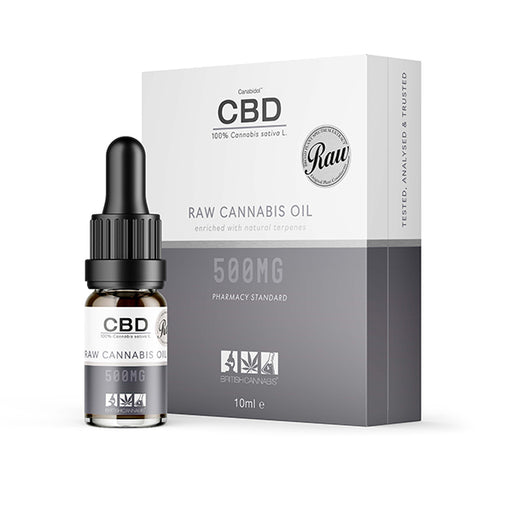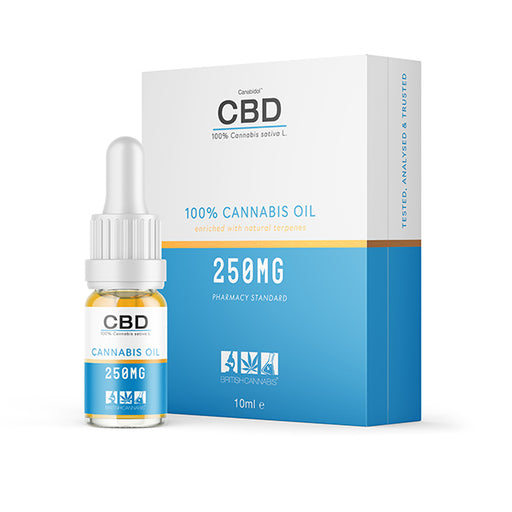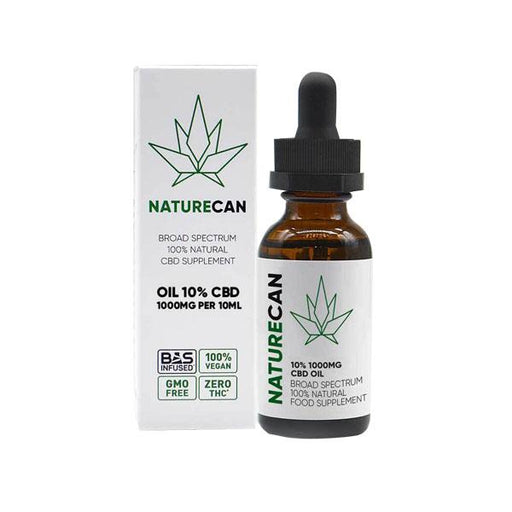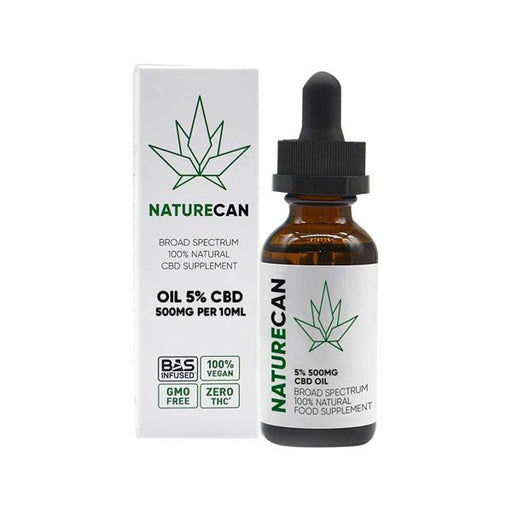

When to take Ashwagandha?
It’s amazing that despite the growing technology globally, some centuries-old medicinal herbs are still in use to date. So, if you want to improve your overall body wellness, Ashwagandha may be the right remedy. This herb will not only help you reduce stress and improve mental stability, among many other benefits.
However, living in a world where different dietary supplements spring up daily, knowing when to take Ashwagandha and how to go about it can be challenging. So read on to learn everything you need about the herb and its other important aspects.
What is Ashwagandha?
Ashwagandha is an ancient herb that has been in use for centuries to reduce stress and anxiety and improve memory. To some it’s considered an adaptogenic medicinal herb, meaning it helps the body cope with stressors and other cognitive functions.
Research also shows that Ashwagandha has many more potential benefits; however, much research is ongoing to prove these benefits.
Benefits of Ashwagandha
While many people associate Ashwagandha with various benefits, here are some of the key ones that you can’t miss when thinking of using Ashwagandha:
Improved Athletic Performance
Ashwagandha is popular among athletes because of its muscle strength and endurance boost capabilities. In addition, Ashwagandha has been shown to increase creatine kinase levels, a marker of muscle damage, and decrease serum cortisol levels, a hormone released in response to stress. Ashwagandha may help individuals recover faster and perform better during subsequent exercise sessions by reducing muscle damage and stress.
Why not also read: Ashwagandha Benefits for Female
Overall, Ashwagandha shows potential as a natural and safe supplement to enhance athletic performance and promote muscle recovery. Ashwagandha has been shown to increase creatine kinase levels, a marker of muscle damage, and decrease serum cortisol levels, a hormone released in response to stress. The herb helps individuals recover faster and perform better during subsequent exercise sessions by reducing muscle damage and stress.
Reduced anxiety and stress
Ashwagandha features natural antioxidant properties, which can reduce stress and anxiety. It regulates the body's stress response system, including the hypothalamic-pituitary-adrenal (HPA) axis and the sympathetic nervous system.
Improved sleep
Stress and anxiety are the biggest enemies of sleep, so by reducing each of these factors, Ashwagandha makes it possible to enjoy your peaceful sleep. In addition, the herb has withanolides and triethylene glycol compounds which are quite calming for the body. These compounds help reduce cortisol levels, the hormone responsible for the body's stress response. By reducing cortisol levels, Ashwagandha can help calm the mind and promote relaxation, leading to better sleep.
Boosting brain function
Ashwagandha positively impacts brain function, including memory, attention, and reaction time. This may improve your body’s energy and focus levels. The herb also increases endurance levels during physical activity. Your body will be able to sustain energy levels throughout the day, making it easy to stay focused on tasks.
Why you need to know when to take Ashwagandha
Knowing when to take Ashwagandha is important since it can affect its effectiveness and cause probable side effects if you fail to take it in time. However, Ashwagandha is generally safe for use, but it effects may vary based on what times of the day you take it.
For instance, taking Ashwagandha in the morning may boost your general energy levels and improve your focus. But on the other hand, taking it in the evening will help promote relaxation and a night of restful sleep. So knowing the best time to take Ashwagandha will help maximise its effectiveness and reduce its possible side effects.
When should you take Ashwagandha?
The best time to take Ashwangadha depends on your expected results. So if you are unsure of when to take the supplement, here is a guide for you:
For Stress and Anxiety
Ashwagandha features antidepressant and anti-anxiety properties that help reduce stress and anxiety. For example, what happens when you are stressed, the body releases cortisol. So the herb reduces cortisol levels in the body and then enhances a calming effect on the nervous system.
However, you mustn’t use Ashwagandha as a replacement for prescription medication for anxiety or depression. If you are considering doing so, ensure you consult a healthcare professional.
For sleep
Stress and anxiety cause insomnia and many other sleep disorders. So when you take Ashwagandha for sleep, the herb reduces stress and anxiety. It also has other compounds that will calm your mind and ensure you are relaxed.
The herb will also enhance the production of Gamma-aminobutyric acid (GABA), a neurotransmitter that helps regulates sleep and increase the melatonin hormones. Melatonin is the hormone that controls the sleep-wake cycle. This, therefore, confirms the studies that Ashwagandha improves sleep quality and increases the duration of deep sleep.
For Athletic performance
The herb increases muscle strength and endurance and reduces exercise-induced muscle damage. Ashwagandha also improves overall physical performance by increasing energy levels, reducing fatigue, and improving concentration and focus.
Forms of Ashwagandha supplements available in the market
With Ashwagandha growing more popular across the globe for its benefits, the only best thing you can do is learn what forms of supplements are present today. This will help you decide what form best suits your needs.
These forms include:
Capsules
Ashwagandha capsules are the most common supplements available today. These have Ashwagandha extract in a concentrated form and are the easiest to consume.
Powder
Ashwagandha powder is made by grinding the plant's dried roots into fine powder. Then you can easily consume it by mixing it with water, milk or juice. You must however be careful about using alcohol and other substances that will hinder the herb’s functionality in the body.
Tincture
The tincture is made by soaking the plant's root in alcohol for a certain duration. The resulting liquid after the steeping is then consumed in small doses.
Topical creams
Ashwagandha topical creams undergo various formulations where extracts from the plant are dissolved into specific solvents to process topical creams and lotions. Then, you can apply it directly to your skin.
Overall the effectiveness of each of these supplements varies based on the individual and your intended use. However, it is best to consult a professional healthcare provider who can guide you on whether Ashwagandha is best for you.
Best Time to Take Ashwagandha
The best time to take Ashwagandha varies depending on the expected needs and the probable supplement form used. However, for a general guideline, here is how you can manage taking it:
If all you need is to reduce stress and anxiety, the best time to take Ashwagandha is in the morning or in the afternoon with your meals. The main reason here is that you will have improved energy levels and focus throughout the day.
If you need the herb to improve your sleep quantity, it is best to take Ashwagandha in the evening or before bed. This will help promote your relaxation and improve your overall sleep quality.
For a boosted athletic performance, taking Ashwagandha an hour before practice, exercise or any physical activity is recommended. With this, you will have improved endurance, strength, and overall performance.
With a doctor’s consultation, the prescriptions can match or be slightly different. So you must consult a trusted healthcare professional before starting these supplements.
Factors to Consider when Taking Ashwagandha
For guaranteed maximum effectiveness, there are several factors you need to consider when taking Ashwagandha. Some of these factors include:
Dosage
The best dosage of Ashwagandha for you will depend on the form of supplement you are taking as well as on your body’s overall metabolic rate. However, it’s best to stick to your doctor’s directions on taking it or the product’s label guideline.
Frequency of use
Taking Ashwagandha daily for the best results is best because its effectiveness builds up over its consistent use. However, the reason for taking the herb will determine the best frequency of taking it and how consistent you should be. For instance, you may only need to take it once a day, in the morning afternoon or evening, based on your needs. For a stressed person once in the morning and once in the evening does you good, for an athletic person, taking it once before the workout will be effective.
Quality
Ashwagandha supplements are created differently, so not all of them are equal. This means you need to look for high-quality supplements from reputable brands that have been independently tested for potency and purity.
You can check through user reviews and customise them to see what people with the same taste as you say about specific brands or forms of supplements. You must also consider many other government regulatory compliance from the Good Manufacturing Practice to other quality standard measures. These will help to confirm that the product has indeed been certified and is of top quality.
Drug Interactions
Despite being a natural extract, Ashwagandha may interact differently with certain medications, thus hindering its overall effectiveness. Depending on your body’s sensitivity and metabolic rate, this may also lead to other side effects.
Therefore, you must talk to your doctor if you are taking any medication or have any health conditions before starting off with Ashwagandha.
Purpose of taking Ashwagandha
You must consider why you are taking Ashwagandha in the first place and what you hope to achieve with it. Remember, different supplements are suited for different purposes; you, therefore, need to choose them based on the one that best matches your needs.
Age and health status
Age and health status are important factors to consider since the older you get, the lower the dose you can take compared to younger individuals. However, in this case, the biggest determiner is how your body will absorb and break down Ashwagandha.
On the other hand, health status is a real factor that you must always consider. For example, pregnant women, breastfeeding mothers, anyone on medication, and those with nursing-specific conditions must always consult a doctor before their first Ashwagandha dose.
A diabetic person for instance needs to be cautious about their dosage because Ashwagandha can affect hormone levels and negatively impact blood sugar levels. Other conditions to be careful about include thyroid disorders and autoimmune diseases such as rheumatoid arthritis, lupus, or multiple sclerosis.
Precautions to Take When Using Ashwagandha
Generally, Ashwagandha is safe for most people if taken in the recommended doses. However, like every other supplement, there are certain precautions you must be careful about when using the herb.
These include:
Allergies
If you are allergic to plants such as tomatoes, peppers and potatoes, chances are high that you may also be allergic to Ashwagandha. You can only confirm these by consulting medical personnel.
Surgery
Ashwagandha is said to affect blood levels differently, depending on your body’s metabolic rate. But if you are set for surgery, stop the Ashwagandha dosage at least 2 weeks before the due surgery date. This is to help avoid the possibility of the natural compounds in the herb reacting with anaesthesia.
Drug interactions
Ashwagandha will interact with medications, including immunosuppressants, sedatives, and thyroid hormone replacement therapy. These are just some medications, but you can learn more from a trained and certified healthcare provider.
Possible side effects of Ashwagandha
Despite being a safe product, here are some of the side effects that are associated with Ashwagandha:
Digestive issues
Some people may complain of diarrhoea, nausea and upset stomach or vomiting. There are different causes for these, but taking the dosage on an empty stomach is one of the many reasons.
Blood pressure
Ashwagandha can lower blood pressure, which can be quite dangerous for persons with low blood pressure levels.
Low blood sugar
People with diabetes or hypoglycemia can almost struggle with even much lower blood sugar levels upon taking Ashwagandha.
Consult a doctor who can guide you appropriately on when to take the herb or when not to take it. Learn to read through the product label. You may find critical information about your condition. So despite Ashwagandha's benefits, many factors need to be considered before taking it.
-

-
Low stockOriginal price £25.00 - Original price £139.99Original price £0.00£25.00 - £139.99£25.00 - £139.99Current price £25.00
Earn 312 reward points
Orange County CBDBrought to you straight from the Sunshine State, Orange County's CBD oil combines full-spectrum, premium cannabinoids with natural terpenes to brin...
View full detailsOriginal price £25.00 - Original price £139.99Original price £0.00£25.00 - £139.99£25.00 - £139.99Current price £25.00Earn 312 reward points
-
Low stockOriginal price £19.99 - Original price £100.00Original price £0.00£19.99 - £100.00£19.99 - £100.00Current price £19.99
Earn 250 reward points
CBD by British CannabisIntroducing the new CBD Cannabis Oil from CBD by British Cannabis. This 100% Cannabis oil has been developed to be the best tasting most premium CB...
View full detailsOriginal price £19.99 - Original price £100.00Original price £0.00£19.99 - £100.00£19.99 - £100.00Current price £19.99Earn 250 reward points
-
In stockOriginal price £25.00 - Original price £25.00Original price £0.00£25.00£25.00 - £25.00Current price £25.00
Earn 312 reward points
CBD FXExperience the natural benefits of CBDfx Hemp Tincture, crafted with high-quality, pure hemp-derived CBD and MCT oil for optimum absorption and e...
View full detailsOriginal price £25.00 - Original price £25.00Original price £0.00£25.00£25.00 - £25.00Current price £25.00Earn 312 reward points
-
In stockOriginal price £19.99 - Original price £19.99Original price £0.00£19.99£19.99 - £19.99Current price £19.99
Earn 250 reward points
CBD FXExperience the natural benefits of CBDfx Hemp Tincture, crafted with high-quality, pure hemp-derived CBD and MCT oil for optimum absorption and ef...
View full detailsOriginal price £19.99 - Original price £19.99Original price £0.00£19.99£19.99 - £19.99Current price £19.99Earn 250 reward points
-
Low stockOriginal price £29.99 - Original price £149.99Original price £29.99 - Original price £149.99Original price £29.99£26.99 - £134.99£26.99 - £134.99Current price £26.99
Earn 337 reward points
Naturecan CBDBroad Spectrum 100% Natural Oil By Naturecan CBD is a high quality broad spectrum CBD oil produced from organically grown US hemp manufactured in t...
View full detailsOriginal price £29.99 - Original price £149.99Original price £29.99 - Original price £149.99Original price £29.99£26.99 - £134.99£26.99 - £134.99Current price £26.99Earn 337 reward points
Save up to 10% -
In stockOriginal price £64.99 - Original price £160.00Original price £0.00£64.99 - £160.00£64.99 - £160.00Current price £64.99
Earn 812 reward points
Supreme CBDSupreme CBD full spectrum oil provides the maximum CBD advantages and is available in three strong variants: 1500mg, 3000mg, and 6000mg. This full ...
View full detailsOriginal price £64.99 - Original price £160.00Original price £0.00£64.99 - £160.00£64.99 - £160.00Current price £64.99Earn 812 reward points




















Leave a comment